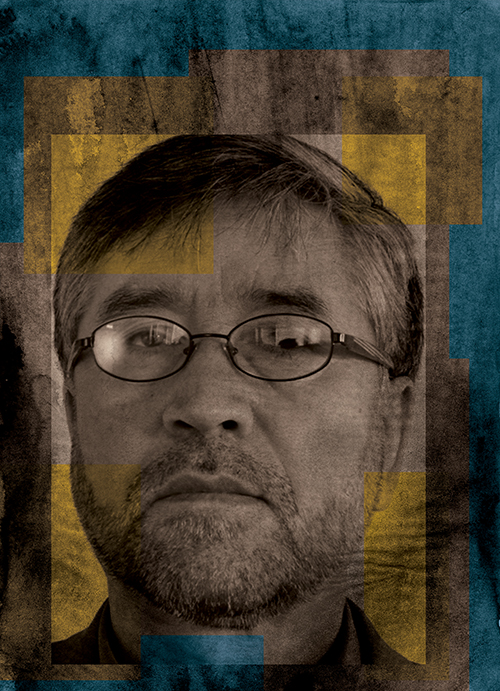Sarvar Hosseini was forced to migrate to Iran after the coup d’état in 1978, where he obtained his BA in Persian Language and Literature and also engaged in religious studies. He later obtained a Masters in Management in the United States of America and a Diploma in Academic Research and Human Rights in France. Hosseini served as the Deputy Minister of Education for four years in the post-Taliban administration.
Can you share with us some memories of instances when your rights have been violated and how they have influenced your life?
My life as a refugee in Iran was fraught with problems. Afghan refugees do not enjoy citizen rights in Iran: they cannot work and engage in business freely. They do not have the right to buy property or cars. I suffered greatly during my time in Iran. The other memory that comes to mind dates to the time of President Daoud Khan. I had just finished eighth grade and was preparing to enter a technical school. My brother and I had managed to pass the entrance exams. But our elder brother was a fanatical religious believer. He bribed the education officials and sure enough, they found an excuse to refuse our applications.
What are the important achievements in Afghanistan today?
Renovating the education system is a great achievement. This new system creates proper opportunities for Afghans to study and to build their future – their own and their country’s. We have tens of thousands of students enrolled in higher education institutes today. That is no small achievement.
The other notable achievement is the extent of people’s access to international and regional sources of information. Today, Afghans are connected to the entire world through radio, TV and print media, as well as via the Internet and social networks. This seemed impossible and out of the question in the past. This renovation of communication and information has raised the level of knowledge and consciousness.
What are the biggest challenges facing Afghanistan?
Racial, ethnic, and religious plurality should be a positive thing, but it poses a major structural challenge in Afghanistan. We do not see and use the benefits of all the different cultural and linguistic capacities. Every group is just focussed on itself: we all feel threatened by the other ethnic communities and groups, and want to keep all of the benefits for our own group. We face serious challenges of cultural impoverishment. The quality of our schools and universities is still very low.
Will present-day Afghanistan allow schools to once again be closed to girls and women excluded from social participation?
The Afghan society has never supported the reduction of women’s presence in the society and it will not do so in the future. Even during the Taliban’s reign, there were significant efforts in support of women attending schools or courses taught in private homes. There has always been a demand for education and democratisation amongst the people. But of course, there are also attempts to force people to prevent their daughters from attending school.
Which factors deter women from participating in social, economic, political and cultural spheres?
Unfortunately, women’s identity has never been recognised in our country. Women are dependent on men in the eyes of society. This vision has permeated deep into the society. One of the major challenges ahead of women, in addition to refusal to recognise the rights of marriage and education, is the right to property, a right that they have been systematically deprived of. On paper, we have everything. The constitution recognises women’s right to property. However, it is blasphemous to speak about it. In reality, women’s right to property is the one thing that is consistently violated in Afghanistan.
What are the major demands of women?
One of the demands is social and political participation by women. Women want to actively and effectively participate in all fields and deem it as their right to do so. Women also seek their civil rights, for example, the right to choose their spouse, the right to education and the right to property.
What have you done in your personal and professional life to fight against discrimination?
I always emphasise individual freedoms and the values of an open society. Our institution, the Cooperation Center for Afghanistan, founded in exile in Pakistan during the civil wars, was one of the first to deal with women’s issues and human rights. We organised many large seminars and published journals. We also organised meetings to make people aware of issues of freedom, equality, and equal rights. We established a journal called Sadaf (Pearl) that specifically addressed women’s issues. Also when I was Deputy Minister for Education, I tried to promote literacy among women.
“Unveiling Afghanistan, the Unheard Voices of Progress” is a campaign by Armanshahr and FIDH, which explores views held by Afghan civil society actors. Over 50 days, 50 influential social, political, and cultural actors hope to spark conversation and debate about building a society that is inclusive of women’s and human rights in Afghanistan.
Follow 50 interviews drawn from the “Unveiling Afghanistan campaign” daily on the Huffington Post. Follow Unveiling Afghanistan on FIDH Twitter: www.twitter.com/fidh_en


